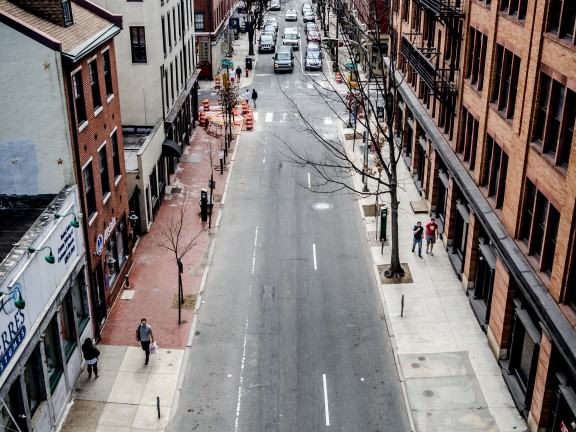New Report Available: “Lessons From a Year of Crisis, Reckoning, and Disruption”

Following a year of reporting on the pandemic, the social impact news agency Generocity has published a report on the impact of the pandemic on the Greater Philadelphia region's nonprofits and philanthropy. The report, “Until Next Time: Lessons from a Year of Crisis, Reckoning, and Disruption,” reasserts the urgency of our region's current economic and social crises and calls out opportunities for nonprofits, philanthropy, and government to act to rebuild a better society.
The reporting project, called TRACE (Toward Response And Economic Recovery), was funded through a partnership led by Independence Public Media Foundation and the Lenfest Institute for Journalism, and joined by HealthSpark Foundation, Scattergood Foundation, The Samuel S. Fels Fund, The Barra Foundation, The Foundation for Delaware County, and the Wells Fargo Regional Foundation.
TRACE's reporting goal was to follow the region's policymaking in 2020-2021, with an eye towards how those efforts aligned- or didn't align- with needs across socioeconomic and demographic groups. In addition to its weekly reporting, TRACE fielded a quarterly survey of regional leaders to assess how these leaders believed the collection of government, nonprofit, and philanthropic groups were responding to the pandemic's challenges.
Findings from a year of reporting include a call to action echoed by HealthSpark's own State of the Safety Net Report (July 2021) for those investing in the social sector regarding flexibility of funds, cooperation and collaboration between partners, and innovation and risk-taking to address systemic issues. The findings outlined in “Until Next Time” include:
- Improve philanthropic flexibility. Funders should provide multi-year unrestricted grants, streamline and simplify paperwork (many advocate for a common application used by all), and solicit and act on grantee feedback.
- Support bold, innovative experiments. Crisis gives permission to tackle intractable problems in new ways. Too often we call for big new ideas, but we're quick to detract from them. Give them support and time. Otherwise the result is many small isolated efforts.
- Benchmark against peer cities. Without context on what is working and what is not, leaders risk losing the motivation and focus to solve real problems. We need a firm handle on tested solutions.
- Consider digital access as foundational. Inequitable digital access is part of the crisis that undercut the effectiveness of myriad emergency measures. This is not one issue but relevant to all.
- Be more precise with the region's diversity. Crisis relief and aid for those with language, cultural, mobility and financial literacy barriers require considerable focus. Though Philadelphia city is the region's diversity heart, increasingly pockets of economic and cultural diversity exist in all regional counties. Some interventions are best at the regional levels; others are best when targeted.
While historically not a funder of journalism projects, HealthSpark joined this regional effort due to the necessity of both documenting the region's response to the pandemic and shining a light on the equity issues becoming apparent in our approaches to response and recovery. As the project continued, the intersection between reporting and our approach to advocacy and shifting public opinion on the value of the safety net became even more clear. As a result of this project and HealthSpark Foundation's ongoing learning regarding opportunities for investing more deeply into advancing social justice, we updated our strategies under the Safety Net Resiliency Initiative to formally include funding media, news, and journalism as part of our broader framework to build a more just and financially resilient social safety net.
HealthSpark is pleased to continue its support of Generocity through general operating support this coming year, as well as to support other news and journalism projects that center more directly on Montgomery County to be shared later this fall.
Download the full report here and be sure to sign up for Generocity's newsletter or contribute to their journalism fund to support their capacity to report on these issues in the future.